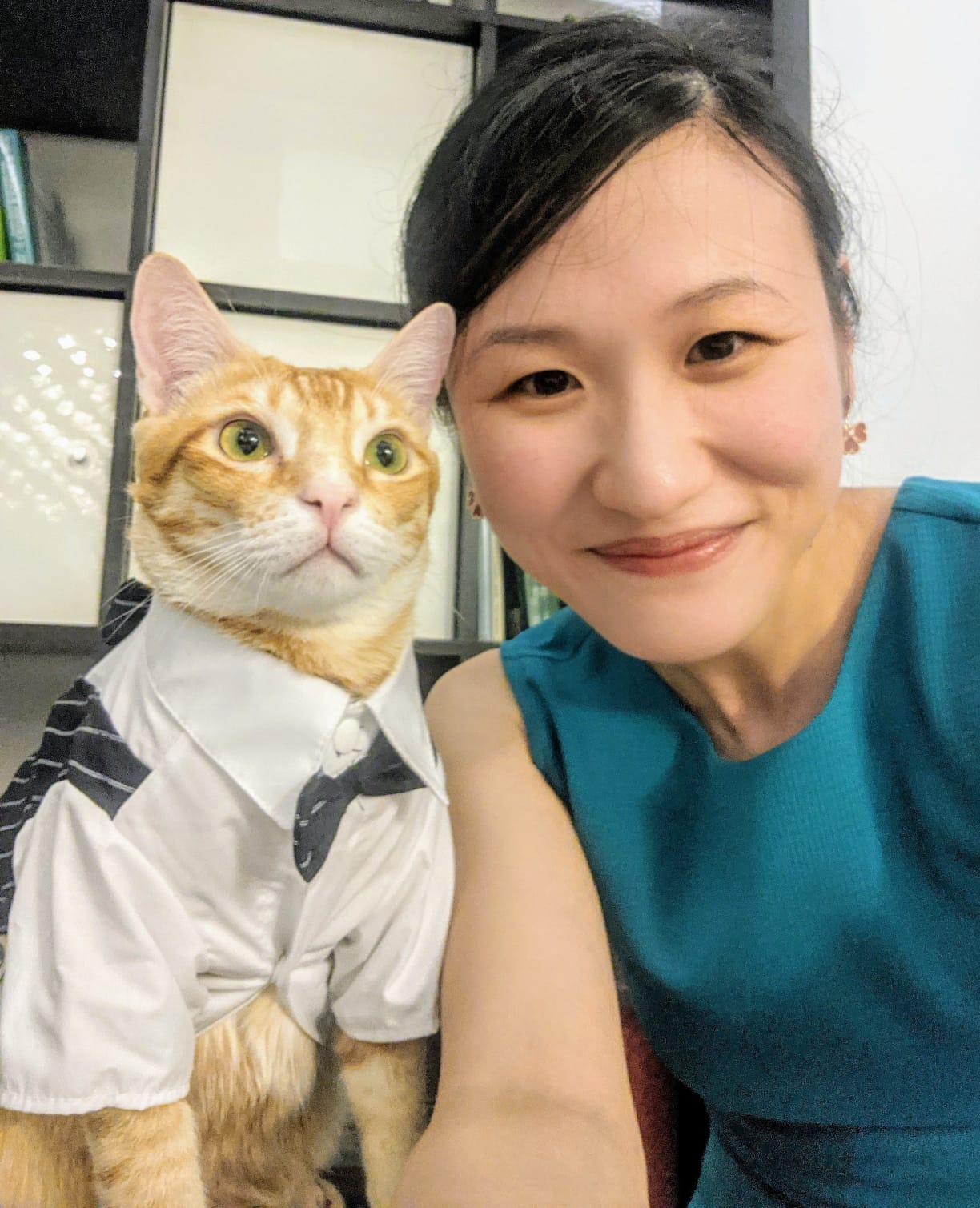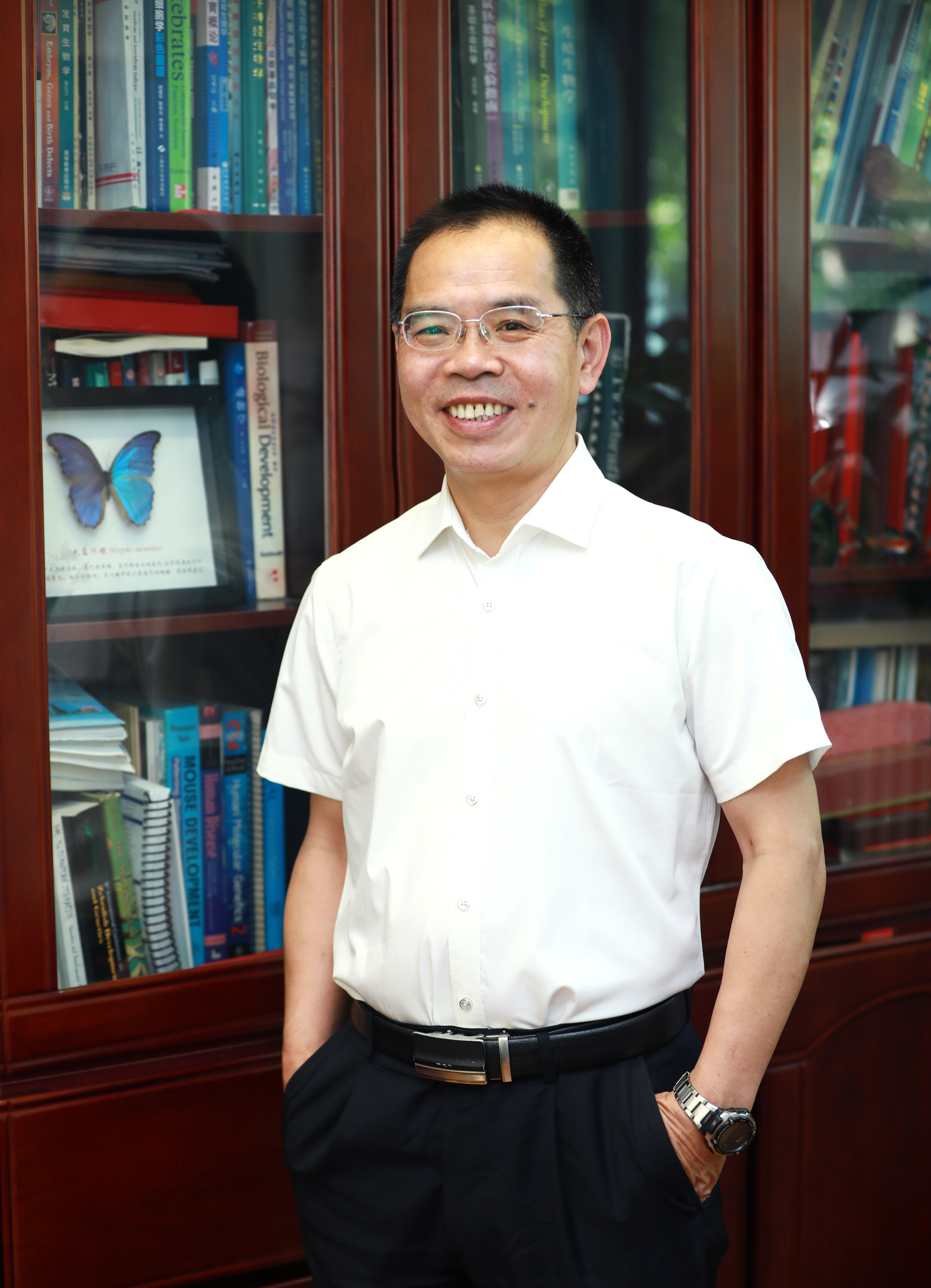Meet the PI
 Caroline L. Wee, PhD
Caroline L. Wee, PhD
Principal Investigator
Institute of Molecular and Cell Biology
Singapore, Singapore
Caroline Wee studied as an undergraduate at Cornell University (Ithaca, New York, USA) and completed her PhD at Harvard Medical School (Boston, USA) in 2016. After working as a postdoc at Harvard and later as a Research Fellow at the Institute of Molecular and Cell Biology (IMCB) in Singapore, Caroline recently established her own lab at the IMCB, where she uses zebrafish to understand the gut-brain neuromodulatory mechanisms that underlie behaviors such as feeding and stress.
What is the research focus of your lab?
My lab uses the zebrafish model to understand the gut-brain circuits regulating feeding decisions, such as how much or what to eat. We are particularly interested in the role of neuromodulators and the interaction of these circuits with host and environmental factors such as the microbiome, diet, and stress.
How long have you been working with zebrafish? How long have you had your own lab?
I have been working with zebrafish for about 10 years now, starting from my rotation days in Florian Engert's lab at Harvard. I officially started my lab in April this year.
Getting to know you better
Where were you born/where did you grow up?
I was born and bred in Singapore, and lived here till I went to college in the US.
Tell us something about yourself in one sentence.
I was an amateur fish hobbyist as a child and successfully bred cichlids and angelfish – I guess that's what attracted me to work with zebrafish!
Science
What advice would you give to someone considering a career in science/research?
The awesome thing about a science / research career is that there is no single “one-size-fits-all”; instead, it accommodates a great diversity of personalities, talents, and career prospects. At the same time, there are skills and characteristics that can help you thrive in a research career, such as resilience, creativity, rigor, and organisation. It is also important to understand what makes you tick. Research is not all sunshine and roses, and you cannot simply rely on “passion” to see you through. Your success often depends heavily on luck, and there is plenty of failure, rejection, criticism, and tedium. A research job is not highly stable, and many will question its immediate value to society. Thus, you will need to find the silver linings in all these clouds. Personally, the small joys of research, such as observing something interesting for the first time, or having a stimulating discussion, help me persevere when the going gets tough. But ultimately you should try to pursue the most fulfilling career path for you, be it in research, science or somewhere else!
Which part of the PI job you enjoy the most? Why?
I enjoy being able to shape the research directions and environment / culture of the lab and seeing it take fruit with cool findings and happy lab members. I also enjoy sharing and discussing our work and ideas with others and fostering new collaborations on multidisciplinary projects (something I've been doing even before I was a PI but can do even more with my resources now!)
Outside of work
What do you enjoy doing outside of work/lab?
I enjoy hanging out with my two cats and instagramming about them (follow @mewsandviews for regular cat-related updates). While not a particularly "active" person, I enjoy leisurely activities such as swimming and rock climbing.
What career would you have liked if you were not a scientist? I think I would have liked to work with animals (e.g. in a zoo), or in a communication- focused role (e.g. teaching, writing, editing)
 Anming Meng, PhD
Anming Meng, PhD
Professor
School of Life Sciences, Tsinghua University
Beijing, China
Anming received his BS degree from Southwest Agricultural University, Chongqing, China, in 1983, and his PhD degree from the University of Nottingham, UK, in 1990. He was an Associate Professor at the China Agricultural University from 1993 to 1996. After receiving his zebrafish training in Shuo Lin’s laboratory as a visiting scholar from 1996 to 1998, Anming established the first zebrafish lab in China in 1998. He was elected as member of the Chinese Academy of Sciences (CAS) in 2007. Professor Anming Meng was Director of the Institute of Zoology (IOZ), the Chinese Academy of Sciences from 2008 to 2012, and now serves as President of the China Zoological Society, with which the China Zebrafish Society (CZFS) is affiliated.
What is the research focus of your lab?
Our research aims to understand maternal-effect factors’ function, embryonic patterning and underlying signaling mechanisms.
How long have you been working with zebrafish? How long have you had your own lab?
I have been working with zebrafish for 25 years. I have had my own lab for 30 years (starting with non-zebrafish animals).
Getting to know you better
Where were you born/where did you grow up?
I was born and grew up in the countryside in Sichuan, a southwestern Province, China. I had a lot of fun during my childhood.
Tell us something about yourself in one sentence.
I’m an ordinary person but never stop thinking and truly believe that scientific research is the best job.
Science
Which of the current projects in your lab you are most excited about?
The initial establishment of cell fate asymmetry in early embryos.
What advice would you give to someone considering a career in science/research?
You should ask yourself “do I really love science/research?” and “do I have good science literacy? – critical thinking, curiosity, scientific acumen, persistence, and optimism ---“. If your answers are “yes”, just go ahead along the science path.
Which part of the PI job you enjoy the most? Why?
Your ideas or hypotheses can be experimentally tested. You have opportunities to know what you and others had not known previously. You may obtain unexpected findings.
Outside of work
What do you enjoy doing outside of work/lab?
Walking and running.
What career would you have liked if you were not a scientist?
Perhaps farming.




